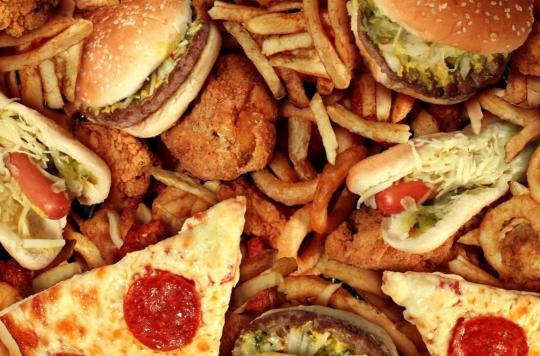French researchers show how fatty foods stimulate our reward circuitry.

- Triglycerides in Fatty Foods Influence Brain Reward Circuitry
- This circuit could explain compulsive behaviors linked to obesity
Why does eating fries generally make you happier than eating a plate of broccoli? Because it produces dopamine, a molecule linked to happiness. According to the conclusions of a group of French researchers, published in the review Cell Metabolism, triglycerides, nutrients found in animal fats, vegetable oils and dairy products, affect the reward circuitry. This term refers to links between different groups of neurons, it is associated with the feeling of pleasure.
#PressRelease ????️ | Scientists have just shown for the first time how fatty nutrients act on the brain in the reward circuit. These results shed new light on the connection between food and eating disorders.
???? https://t.co/koxfX7AK23 pic.twitter.com/rQphr0hEgl
– Scientific Research National Center ???? (@CNRS) March 9, 2020
A first study carried out on mice
The researchers found that in mice, triglycerides act on neurons in the reward circuit. They wanted to verify their hypothesis: triglycerides have a reinforcing role, this means that they act directly on the notion of pleasure by releasing dopamine. To test it, they placed mice in two-compartment boxes of two colors. In one of them, the mice received lipids in their brains, in the other, they received a saline solution. The mice went spontaneously to the part where they received lipids. “This experience was perceived as pleasant and that the animal would like to reproduce it”explains the researchers in The Conversation.
Results confirmed in humans
At the same time, the researchers observed the brains of humans using functional brain imaging techniques. This makes it possible to analyze brain activity in specific areas of the brain. The scientific team tested how the brain reacts to a pleasant smell of food, such as a chocolate chip cookie. They note that the increase in triglycerides in the blood is correlated with the activity of the prefrontal cortex, an area of the reward circuit. “This result is important since it allows us to consider that in humans, as in croppers, circulating triglycerides could act ‘directly’ to areas of the brain involved in the “reward” associated with food”they conclude.
What are the links with obesity?
The researchers will not stop there, they would now like to understand whether deficiencies in the detection of lipids by the neurons of the reward circuit can lead to eating disorders. When too rich meals are frequent or in case of obesity, the body can no longer regulate the levels of triglycerides, and they are permanently present in the blood. This could alter their detection by neurons, and explain why the consumption of rich food can lead to compulsive eating behaviors.

.

















